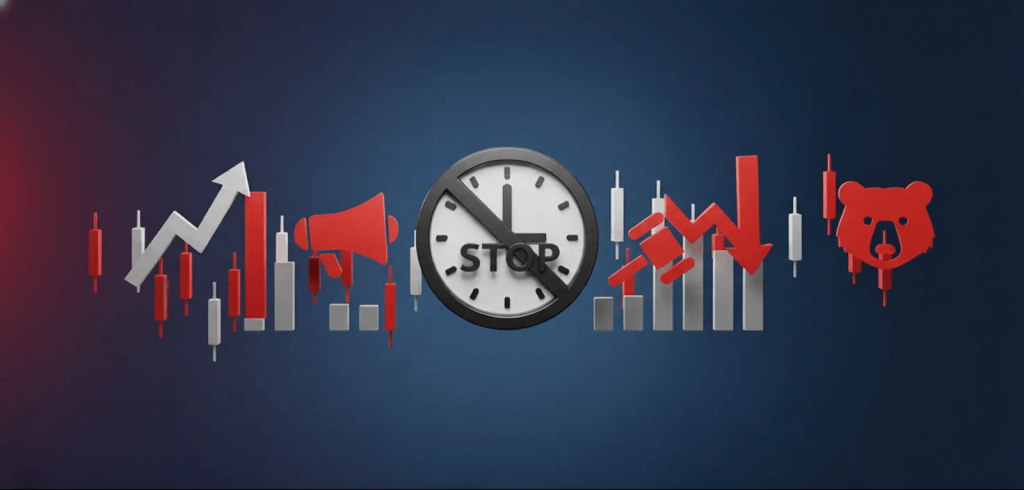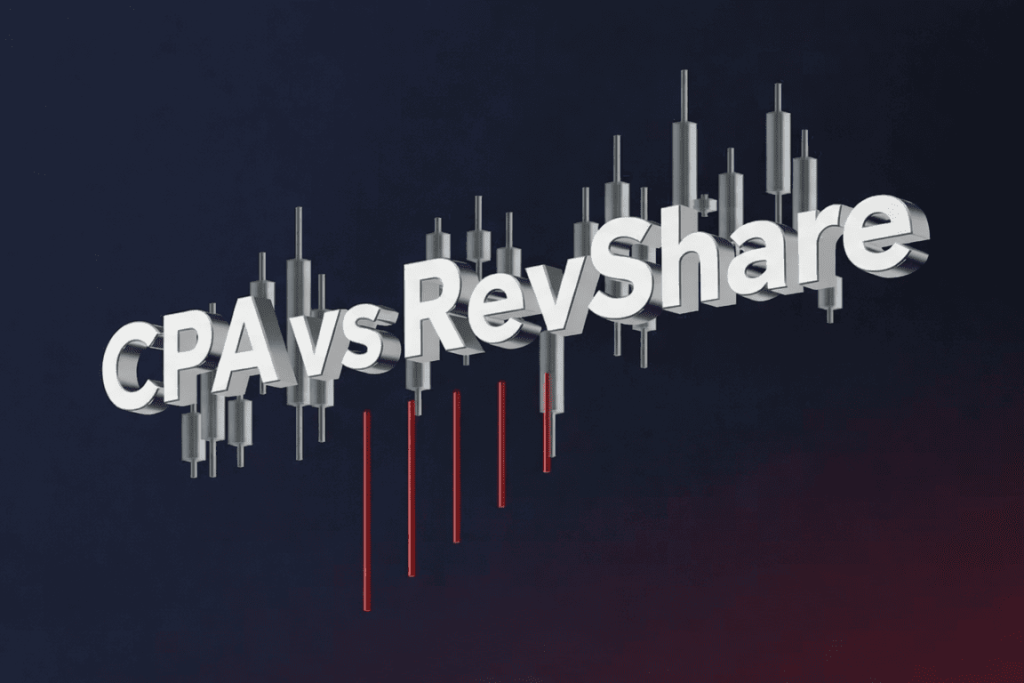
10 Best Trading Books to Read in 2026 (for Beginners and Advanced Traders)
Contents
To succeed in fast-changing markets, traders must keep on learning. These 10 best trading books of 2026 cover everything from technical analysis right through to trading psychology and risk management. Whether you’re a beginner or experienced trader, these classics can sharpen your edge.
Quick Summary Table
| Title | Author | Focus | Best for |
| Trading in the Zone | Mark Douglas | Trading psychology | All levels |
| Market Wizards | Jack Schwager | Interviews with top traders | Intermediate to advanced |
| Technical Analysis of the Financial Markets | John Murphy | Technical analysis | Beginners |
| The Intelligent Investor | Benjamin Graham | Value investing | Beginner to advanced |
| Reminiscences of a Stock Operator | Edwin Lefèvre | Trading mindset | All levels |
| One Good Trade | Mike Bellafiore | Process-focused trading | Intermediate |
| Fooled by Randomness | Nassim Taleb | Risk and probability | Advanced |
| The Disciplined Trader | Mark Douglas | Emotional discipline | All levels |
| High Probability Trading | Marcel Link | Strategy design | Intermediate |
| Japanese Candlestick Charting Techniques | Steve Nison | Candlestick patterns | All levels |
“Trading in the Zone” – Mark Douglas
Mark Douglas’s classic book “Trading in the Zone” explores closely the psychological obstacles preventing effective trading. Perfect for traders of all levels who battle with emotional control, this book is especially helpful for individuals who understand trading techniques but find that psychological barriers preventing consistent outcomes. Douglas stresses the need to change one’s perspective to become probabilistic, realize that the market is naturally uncertain, and concentrate on risk management instead of forecasts.
Important lessons from this book are learning to think in probabilities to grasp the actual nature of risk, gaining the discipline and confidence required to regularly carry out trading strategies, and strengthening mental resilience to stick to tactics among market volatility. The book offers special tools including mental frameworks and useful activities that enable traders to absorb these ideas and implement them in actual trading environments. Understanding the psychological elements of trading as this book presents can help traders increase their consistency and feel more in control of the outcomes of their business.
“Market Wizards” – Jack D. Schwager
This book provides a wealth of knowledge on several trading tactics as the reader will discover interviews with some of the most successful traders in many marketplaces. Intermediate to expert traders looking for ideas and useful insights to improve their own trading strategies will find perfect fit in this book. Those who want to know how elite traders create their special edge and adjust to shifting market conditions especially find it helpful.
Readers will learn about many trading philosophies, risk management strategies, and the need for psychological resilience. Important lessons include understanding how successful traders view risk, approach losses, and bounce back. First-hand experiences and personal stories that provide a glimpse behind the scenes of what it takes to be successful in trading are among the distinctive features of this book. Learning from the experiences of elite traders will motivate readers to create plans fit for their skills and market awareness.
“Technical Analysis of the Financial Markets” – John J. Murphy
This masterpiece is regarded as a foundation for everyone doing technical analysis. Beginners wishing to lay a solid foundation in technical analysis as well as intermediate traders seeking to enhance their knowledge will find this all-inclusive guide perfect. The book addresses a broad spectrum of subjects including chart patterns, indicators, oscillators, market indicators, and intermarket relationships influencing trade decisions.
Important lessons are learning to use the tools to examine market trends, spotting trading prospects, and basing judgments on technical evidence as opposed to speculation. The book’s particular qualities are its thorough explanations and useful illustrations that simplify difficult ideas.
You may also like

“The Intelligent Investor” – Benjamin Graham
Fundamental notions of value investing that traders might find very relevant are presented in Benjamin Graham’s “The Intelligent Investor”. Perfect for beginners and advanced traders—especially those drawn in by long-term investing and fundamental analysis—this book explains the idea of value investing, stressing careful study and a margin of safety in investment selections.
Important lessons include learning how to evaluate the fundamental worth of assets, make reasonable judgments in the midst of market frenzy and panic, and apply a disciplined strategy whereby decisions are based on objective criteria instead of feelings. One of the book’s special qualities is its ageless financial ideas and useful guidance that are still applicable in the current markets. Traders may make more informed and rational judgments by thinking about the long term and avoiding common errors caused by market fluctuations.
“Reminiscences of a Stock Operator” – Edwin Lefèvre
One of the more interesting and unique books from this list, “Reminiscences of a Stock Operator” presents a fictitious biography of Jesse Livermore, a legendary trader of his time. Anyone interested in the emotional roller coaster of trading or the human side of the markets would benefit from this book.
Significant concepts on risk management, timing the market, and the need to benefit from one’s mistakes are among the key insights. The book emphasizes how just as crucial as intellectual abilities are emotional control and personal discipline. One of the special qualities is the interesting narrative that vividly depicts Livermore’s career highs and lows and provides thorough understanding of the psychological difficulties traders deal with. Readers will be able to see that, in trading, success usually entails overcoming both internal and external challenges by realizing and correcting their own psychological biases.
“One Good Trade” – Mike Bellafiore
Mike Bellafiore’s “One Good Trade” emphasizes that, from his experience at a proprietary trading company, continuous performance results from concentrating on the process over earnings. Perfect for intermediate traders hoping to turn their pastime into a career, this book is especially helpful for those trying to develop into disciplined professional traders.
Fundamental concepts offer useful guidance on honing trading abilities including building playbooks, analyzing deals, and lifelong learning. The book emphasizes the need for discipline, flexibility, and keeping a professional attitude to trade. Reading this book will enable readers to develop the attitude and behaviors needed for long-term trading success as it provides useful advice and real-life cases.
“Fooled by Randomness” – Nassim Nicholas Taleb
Perfect for pros and advanced traders, this book asks readers to reinterpret their ideas of success and failure. Those who wish to learn about the part chance plays in trading results, how it compares to the structured nature of algorithmic trading, and develop more skepticism and risk-consciousness could especially benefit from it.
Important lessons are realizing cognitive biases that could mislead traders, challenging presumptions, and knowing one’s knowledge limits. The book’s provocative arguments and investigation of the influence of randomness on many spheres of existence set it apart. By developing strategies that account for unpredictable events, readers can lower the danger of catastrophic losses and improve their decision-making processes.
“The Disciplined Trader” – Mark Douglas
In “The Disciplined Trader,” Mark Douglas tackles the psychological obstacles standing in the way of traders producing consistent performance. Perfect for all levels of traders who struggle with emotional control, this book is especially helpful for those who grasp trading techniques but find emotional reactions compromise their performance.
Important lessons include approaches to strengthen emotional control and self-discipline, exercises to keep concentrated and focused on trading plans, and strategies to get over overconfidence and fear. Some of the special qualities are useful models that enable traders to control their emotions. The book promotes greater performance and decision-making by arming readers with the means to meet psychological problems.
“High Probability Trading” – Marcel Link
Marcel Link’s “High Probability Trading” presents a useful manual for creating trading systems which increase the possibility of profitable deals. Perfect for traders trying to boost consistency, this book is especially helpful for those wishing to simplify their trading process using specific techniques.
Important lessons are developing strong risk management techniques, designing a sensible trading strategy, and closely assessing trading results. The book offers special features like practical techniques to spot high-probability configurations and prevent typical trading errors. Through concentrating on trades with the best possible results, readers can maximize their efforts for maximum profitability.
“Japanese Candlestick Charting Techniques” – Steve Nison
Steve Nison teaches the readers about the art of candlestick charting, which nicely visually illustrates the psychology of the market. This book will be advantageous to traders of all levels, regardless of whether they are novices or have years of experience, who are interested in technical analysis and, in particular, desire to enhance their market sentiment detection capabilities.
Mastering candlestick patterns to highlight future market reversals and continuations, strengthening technical analysis abilities, and timing the market are all important lessons. The extensive descriptions of distinct patterns and how they might be incorporated into a trader’s analytical toolset are some of the distinguishing characteristics. This useful approach will help readers make more wise trading judgments.
You may also like

Best Books by Asset Class
| If you trade… | Read this first | Why? |
| Crypto / FX | Japanese Candlestick Charting Techniques | High volatility requires precise price-action timing. |
| Stocks / Options | One Good Trade | Focuses on professional proprietary desk discipline. |
| Long-term ETFs | The Intelligent Investor | Teaches you to ignore daily noise for long-term gains. |
| Futures | Technical Analysis of the Financial Markets | Essential for understanding leverage and trend shifts. |
The Evolution: Applying Classics to 2026 Markets
While the 10 books above provide the “DNA” of trading, the environment in 2026 has evolved. Today’s most successful traders are Hybrid Traders—those who combine the timeless psychological discipline of Mark Douglas with modern technological tools.
- Algorithmic Assistance: Even if you aren’t a coder, understanding the “Market Wizards” logic helps you use AI-driven scanners to find setups in seconds that used to take hours of manual charting.
- The 24/7 Information Cycle: In the age of instant social media volatility, Benjamin Graham’s “Margin of Safety” is more relevant than ever to protect against “flash crashes” and hype-driven pumps.
How to Select the Right Trading Book
Don’t know where to begin? The proper book to select depends on your current level of experience and learning objectives. Use these brief tips to select the most beneficial book for your trading experience.
Establish Your Level
- Beginners need to establish a good foundation first.
- Start with Technical Analysis of the Financial Markets by John J. Murphy or The Intelligent Investor by Benjamin Graham for a straightforward, methodical introduction to trading and investment principles.
Mindset First
- Success in trading is as much dependent on trading psychology as on technical skill.
- Trading in the Zone and The Disciplined Trader by Mark Douglas are excellent for learning emotional control, managing fear, and establishing the right mindset.
Then Add Technical Depth
- After establishing mental toughness, dive deeper into strategy and analysis.
- Books such as High Probability Trading by Marcel Link and Japanese Candlestick Charting Techniques by Steve Nison can hone your technical advantage and strategy-formulation skills.
Investigate Real-World Stories
- Learning how top traders think can influence your approach.
- Market Wizards and Reminiscences of a Stock Operator provide backdoor stories and real-life lessons from trading legends.
Top Trading Skills You’ll Learn from These Books
These books aren’t just going to teach you ideas – they’re going to hone actual, real-world skills that can make you a more effective trader. Here’s what you’ll learn as you read them:
- Risk management skills – how to size your positions, utilize risk management tools like stop-loss and take-profit orders, and protect your capital.
- Emotional discipline and control – managing fear, greed, and overconfidence to stay consistent.
- Reading charts and trends in the market – determining entry and exit points using technical analysis tools on charting platforms like MT4 and MT5.
- Creating and testing trading plans – formulating disciplined, rules-based systems that fit your personality.
- Understanding market psychology – interpreting crowd behavior and sentiment to predict market activity.
- Long-term investment concepts – value, patience, and fundamentals for long-term rewards.
Why Reading Trading Books Still Matters in 2026
In the era of fast content and social media trends, books remain one of the best ways to gain true trading wisdom. Here’s why they’re as essential in 2026:
- Most approaches online are trend or surface-level – Social media is prone to feature fast-fix ideas that fall apart later.
- Books teach timeless, systematic lessons – Written by seasoned traders who have tried out their ideas over decades.
- Reading builds in-depth understanding – Books teach the underlying fundamentals of strategy, rather than surface-level tactics or signals.
- Successful traders bring knowledge and practicality together – The most successful traders use book-learning to guide their decisions and hone their in-practice expertise.
Stop Hunting for “Holy Grail” Indicators Most beginners fail because they look for a “signal” (a magic green arrow) instead of a “system.” Books like High Probability Trading teach you that a profitable strategy is 20% entry signal and 80% trade management. In a world of automated bots, your edge isn’t finding the trade—it’s having the discipline to stay in it or the wisdom to cut it early.
Reading Roadmap
Your 90-Day Trading Education Roadmap
If you are overwhelmed, follow this three-month sequence to transform your trading:
- Month 1: The Foundation. Read Technical Analysis of the Financial Markets. Learn to speak the language of the charts.
- Month 2: The Mindset. Read Trading in the Zone. You will likely face your first “losing streak” here; this book will save your account from emotional revenge trading.
- Month 3: The Professional Edge. Read Market Wizards. Study how the pros managed their biggest wins and losses to refine your own personal style.
Conclusion
Putting in time to study these ten books will greatly improve your trading knowledge and abilities. From technical study and strategy formulation to psychological resilience and risk management, every book covers many aspects of trading. Learning from the experiences and insights of seasoned professionals can help you to create a balanced trading strategy combining intellectual ability with emotional control. This thorough knowledge will not only enhance your trading success but also help you to change with the fluctuations of the financial markets.
FAQ
John J. Murphy's "Technical Analysis of the Financial Markets" is a good starting point book that lays a good foundation in charting and market structure.
Mark Douglas's "Trading in the Zone" is the best-recommended book on mindset, control of emotions, and having a consistent trading system.
Books can accelerate your learning, refine your skills, and avoid your errors, but direct experience in real markets is also required.
No, but you should understand "logic." These books teach you the if-then logic that powers modern trading algorithms. Understanding the theory allows you to use no-code automation tools effectively.
The assets change, but human nature (greed and fear) does not. The candlestick patterns described by Steve Nison in the 90s are just as accurate on a Bitcoin 4-hour chart today because they represent the collective psychology of buyers and sellers.
Updated:
February 2, 2026
9 February, 2026
What Is a Trading Halt? Why Stocks Stop Trading and What It Means for You
A trading halt is when an exchange temporarily stops trading in a stock or, in rare cases, the entire market. It’s not a glitch and it’s not random. It’s a deliberate pause triggered when prices move too fast, critical information is about to be released, or regulators need time to step in. From the outside, […]



